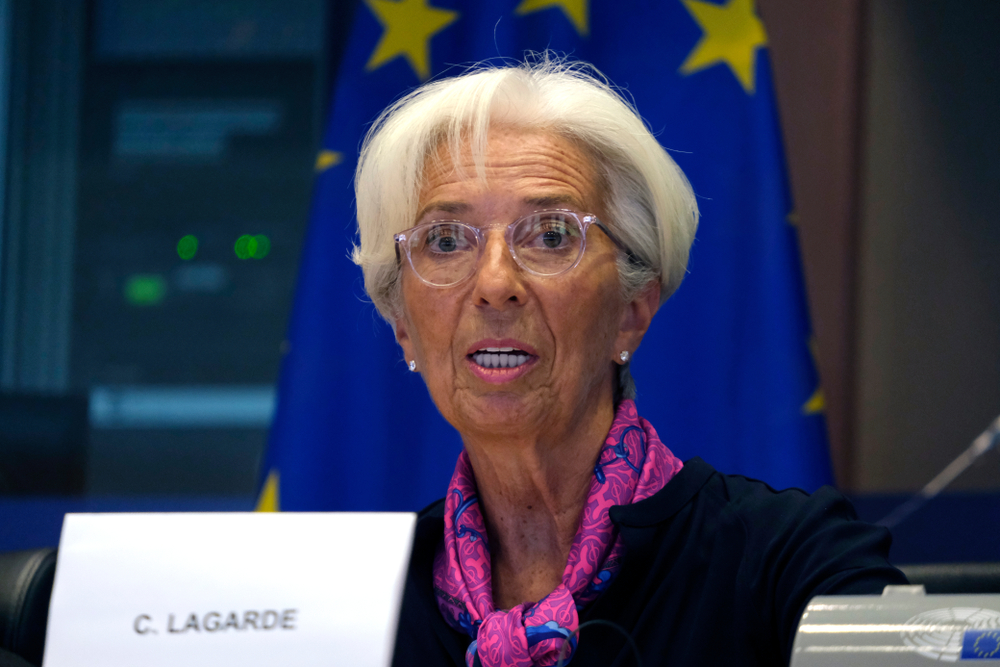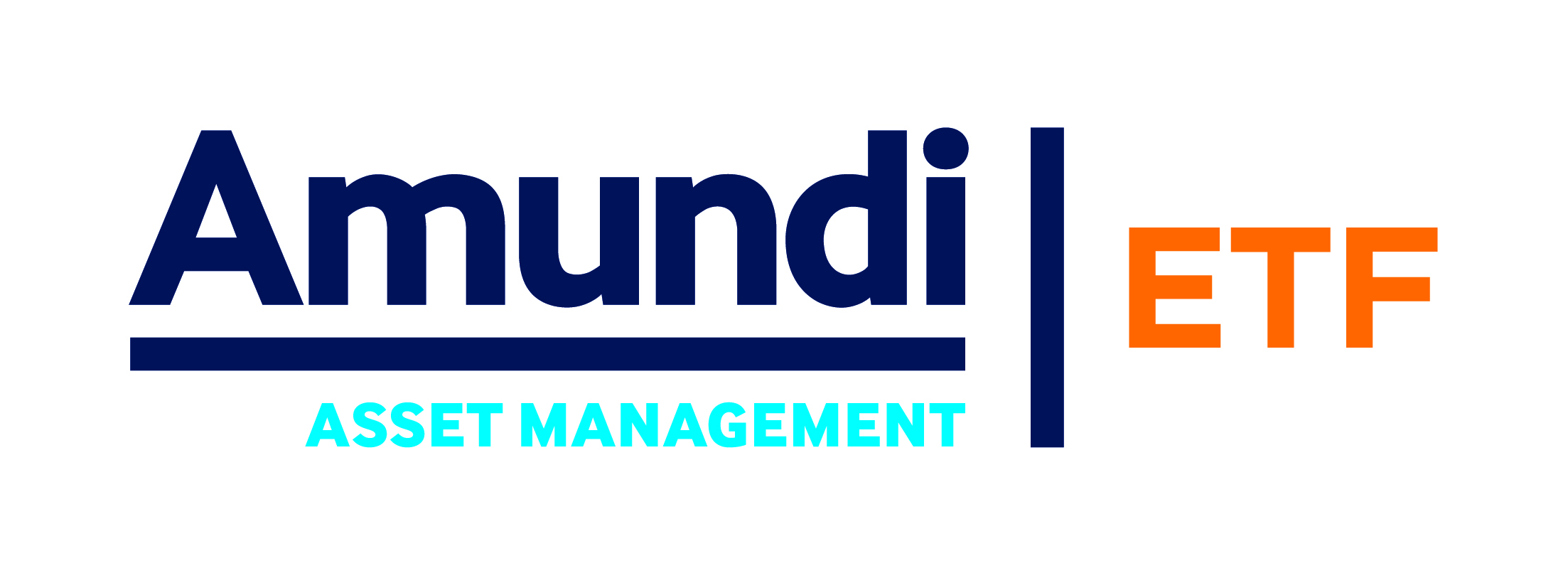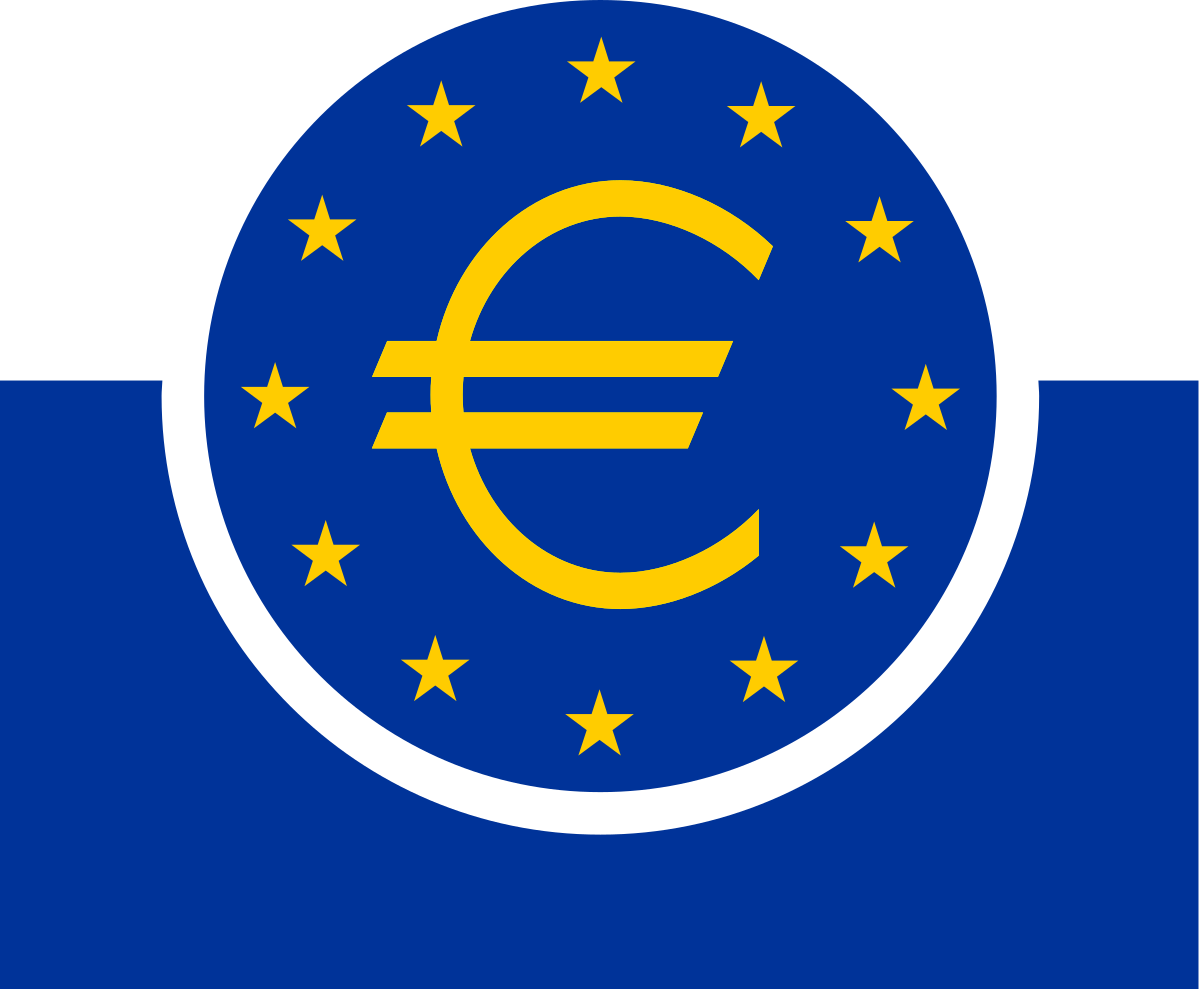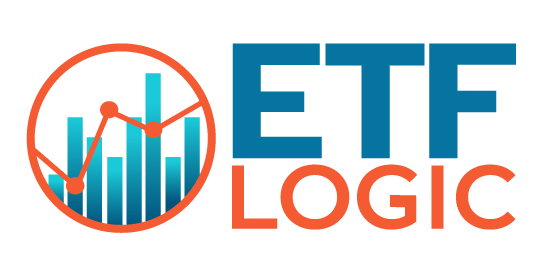Investors have turned to higher-risk euro-denominated fixed income ETFs amid predictions the European Central Bank’s monetary policy will be more accommodative over the next 12 months.
According to data from ETFLogic, the iShares Core € Corp Bond UCITS ETF (IEAC) has seen $1.7bn inflows over the past month, as at 22 November, while investors have poured $330m into the iShares € High Yield Corp Bond UCITS ETF (IHYG).
The strong demand for risk-on euro-denominated bond assets comes after a shift in tone from ECB President Christine Lagarde following the central bank’s second-consecutive 75 basis points (bps) interest rate hike on 27 October.
The ECB council – led by Largarde (pictured) – struck a more dovish tone in its statement including the comment it has made “substantial progress” in “withdrawing monetary policy accommodation” and replacing the reference to rate hikes over the “next several meetings” with the ECB “expects to raise interest rates further”.
Lagarde said in the press conference: “With this third major policy rate increase in a row, we have made substantial progress in withdrawing monetary policy accommodation. Our future policy rate decisions will continue to be data-dependent and follow a meeting-by-meeting approach.”
Recognising the shift in tone, markets priced out one expected 25bps hike in 2023 meaning the peak of the current interest rate cycle will be lower than estimated prior to the meeting, according to PIMCO.
Commenting on the ECB’s hike, Konstantin Veit, portfolio manager at PIMCO, said: “A peak policy rate of 2.7% now priced in by the market looks reasonable given current information.
“Quantitative tightening will come into sharper relief towards the end of the year. This will require careful calibration, as the ECB will want to avoid a situation such as that recently experienced in the UK, where the Bank of England intended to reduce bond holdings for monetary policy purposes but acquired bonds on financial stability grounds instead.”
Despite the recent strong performance in longer duration and risk-on euro-denominated bonds, Valentine Ainouz, head of global fixed income strategy at Amundi Institute, warned investors should not take too much risk due to the deteriorating economic backdrop.
“The ECB seems much more worried about the outlook for growth and expects a further weakening in economic activity over the remainder of this year,” Amundi said. “We keep an overall slightly negative to neutral stance on duration and credit.”
Overall, pressure is on the ECB to continue its hiking cycle after eurozone inflation hit another record of 10.7% in October, up from 9.9% in September, ahead of 10.2% expectations and over five times the central bank’s 2% target.
As a result, there is a chance the ECB could raise interest rates by 75bps at its December meeting instead of the widely-anticipated 50bps hike.
As Dan Boardman-Weston, CEO and CIO at BRI Wealth Management, said: “The ECB has a difficult balancing act though as inflation continues to darken the economic outlook, meaning they are raising rates at a time when the economy could do with a more dovish stance.
“The growth outlook for Europe is gloomier than it has been since the dark days of COVID-19 or the eurozone crisis a decade ago and we are likely to see a material slowdown in economic activity through the rest of 2022.”
Related articles






